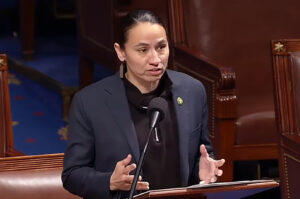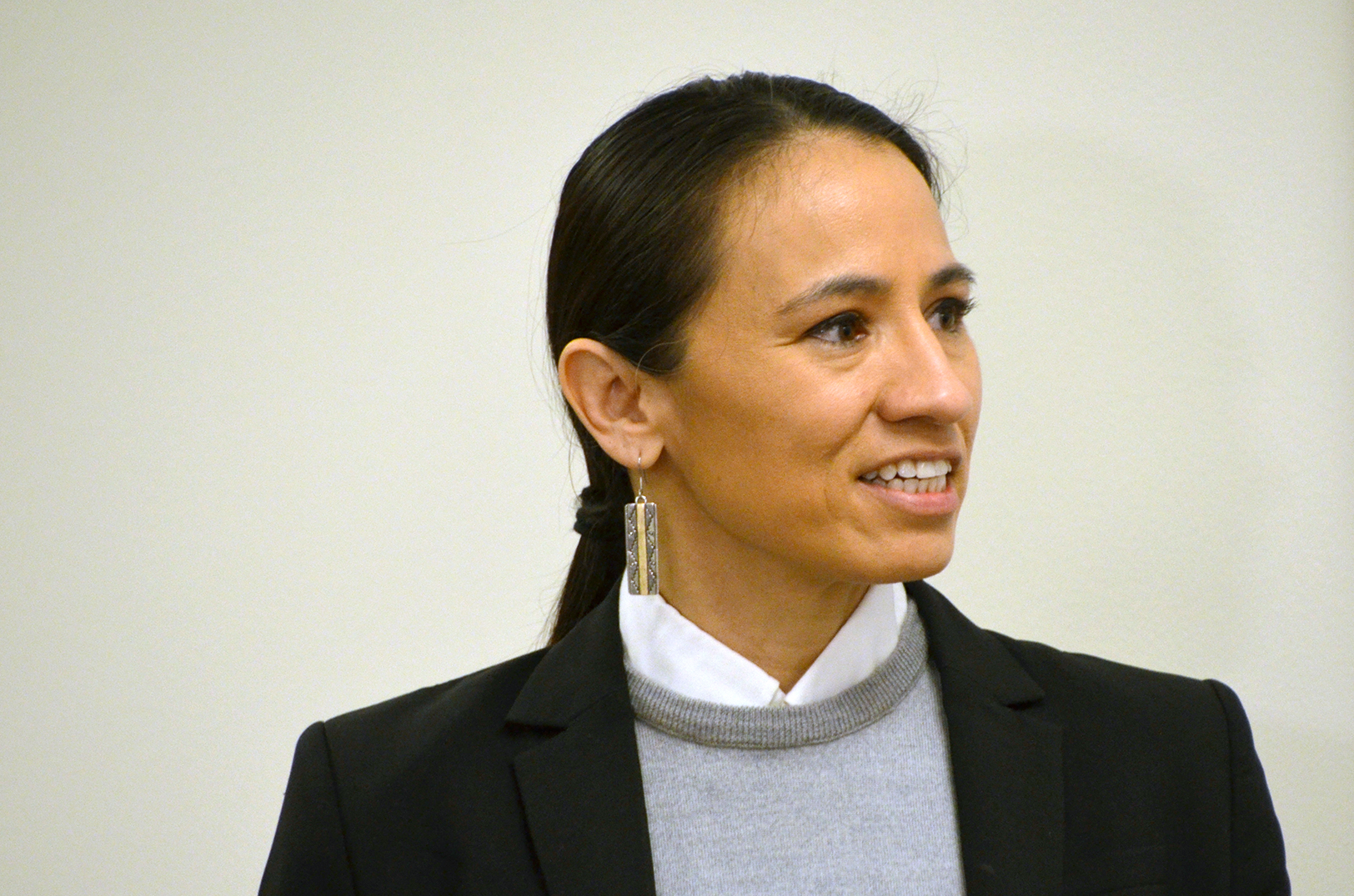Legislation meant to address entrepreneurship challenges specific to Native and tribal business owners advanced in the U.S. Congress this week, with a Kansas City lawmaker championing the effort to bring equity to an overlooked corner of the small business community.
“In Indian Country, Native-owned businesses employ over 300,000 Americans and are vital drivers of our national economy,” said U.S. Rep. Sharice Davids, D-Kansas. “These tribal businesses deserve a seat at the table to advocate not only for solutions to the challenges they face, but also the successes and achievements that they have earned.”

U.S. Rep. Sharice Davids, D-Kansas, speaking on the U.S. House Floor; image courtesy of Davids Office
Davids’ bipartisan bill — known as the Native American Entrepreneurial Opportunity Act and introduced by the second-term Congresswoman alongside U.S. Rep. Eli Crane, R-Arizona — passed the U.S. House Thursday. The bill now moves to the U.S. Senate where it advanced out of committee in July 2023.
“I’m proud that my bill, which breaks down barriers for Native entrepreneurs, passed the House with strong bipartisan support, showing us all that support for Native communities goes beyond party lines,” said Davids, who is an enrolled member of the Ho-Chunk Nation and member of the U.S. House Small Business Committee.
The proposed legislation would create a better government-to-government working relationship with Tribes and Native Hawaiian organizations, Davids said. The Small Business Administration’s (SBA) Office of Native American Affairs (ONAA) would also be able to expand its grant-making ability, establish field offices, conduct tribal consultation, utilize SBA’s entrepreneurial and contracting programs, and provide training, counseling, and technical assistance.
“It’s no secret that our nation’s entrepreneurs face challenges in starting and operating small businesses, finding a skilled workforce, establishing an effective online presence, and building a customer base,” Davids said. “These hurdles are common to all small business owners. However, our Native American small business owners face these challenges in a more severe way.”
The lawmaker discussed the factors behind that disparity Thursday on the House floor.
“Native Americans are twice as likely to live in poverty as compared to other Americans. This significantly impacts their ability to use savings and assets to fund their small business, to access credit, and to take on the risk of entrepreneurship,” Davids said. “These business owners face geographical barriers with longer distances for supply deliveries, and a lack of reliable broadband and telephone service. These physical obstacles make networking, finding mentors and reaching out to consumers more difficult, ultimately reducing their chances of success.”
Another factor: greater hurdles in attracting private investment and accessing federal contracting opportunities, she said.
“Addressing these challenges is crucial to leveling the playing field for tribal, small business communities and bolstering our overall economy,” Davids said. “Currently, the U.S. Small Business Administration’s Office of Native American Affairs works diligently to connect Native business owners with entrepreneurial development, lending, and, and procurement programs. However, the absence of a congressional mandate for this office limits its capacity and leaves it vulnerable to changes from one administration to the next.”
The legislation enhances the ONAA by codifying it into federal law, establishing an assistant administrator role to oversee its operations and report directly to SBA leadership.
“It would also require the office to report to Congress on its successes,” she said.
Earlier this week, Davids also urged the U.S. Department of Interior to recommit to enforcing a rule that levels the playing field for Native businesses seeking federal contracts.







































